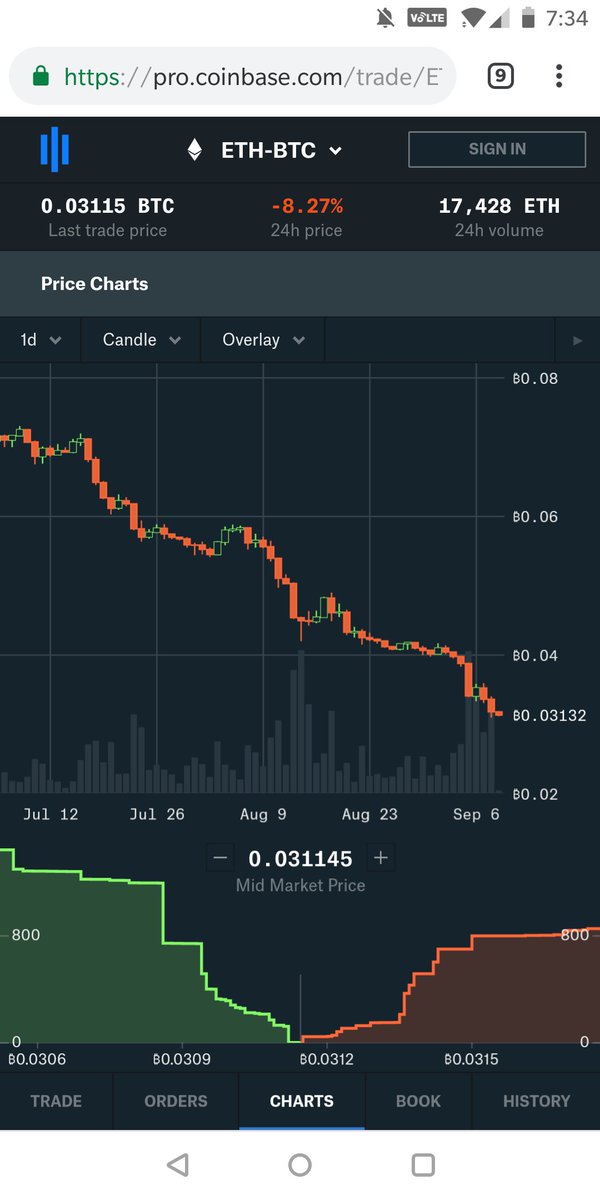1/ #Ethereum is crashing (not just in USD terms but in BTC terms); has the demand for a decentralized world computer disappeared, or is something else at play? Let's consider the fundamentals from an economic point of view. 

2/ The price level of all monetary goods is determined by (and only by) reservation demand. More precisely, the duration that the average unit of the monetary good is held in reserve.
3/ At one extreme you have a good like gold that is stored in vaults in perpetuity because of a widely held belief that it will retain its value long into the future.
Gold has a very high reservation demand which is why it has a market cap of over seven trillion dollars.
Gold has a very high reservation demand which is why it has a market cap of over seven trillion dollars.
4/ At the other extreme you have monies like the Venezuelan peso that is treated like a hot potato. If you receive it in exchange, it becomes imperative to relinquish it post haste lest its value slip away like sand through your fingers.
The peso has low reservation demand.
The peso has low reservation demand.
5/ The investment case for Ethereum (#ETH) is that it will become the most liquid token in a digital economy built atop of a Turing-complete decentralized computer that can execute smart contracts. But how do these contracts affect reservation demand?
6/ For the most part smart contracts have no affect whatsoever on reservation demand, just as transactional use on Bitcoin plays little-to-no role in reservation demand for it. The primary source of reservation demand is the removal of currency from the order book of exchanges.
7/ There is, however, one particular kind of smart contract that has increased reservation demand for ETH: contracts used for ICOs. These contracts lock up supply as ETH is held in reserve by companies raising capital to fund operations.
8/ ETH held in ICOs increases reservation demand at the time the capital is raised, but lowers it as the ETH is sold on exchanges to provide funding for operations.
9/ In a bull market companies that have raised ETH may sit on it (increasing reservation demand) in hopes of extending their runway with the rising value of ETH. In a bear market companies will want to dump their ETH as fast as possible, hoping not to be last in line.
10/ The most powerful reason for the crash in ETH is that the ICO market is now largely dead (it being apparent that almost all ICOs were complete scams), and those that did raise capital are trying to liquidate their ETH before their product runway vanishes before their eyes.
11/ #Bitcoin on the other hand does not face the same problem because its primary use case is as a non-sovereign store of value. I.e., the primary use case is HODLing - which is pure unalloyed reservation demand - and this will continue for a long time: until we see full adoption
12/ Addendum: Here is a list of companies that have raised ICO funding in ETH:
dappcapitulation.com
If one or two large holders sell their ETH to protect their product runway, it will trigger a stampede. The bottom is not in.
dappcapitulation.com
If one or two large holders sell their ETH to protect their product runway, it will trigger a stampede. The bottom is not in.
Thanks for the all corrections to this tweet. It's the Venezuelan Bolivar not Peso. At least I didn't say Rupee. That would have been really embarrassing 😂
• • •
Missing some Tweet in this thread? You can try to
force a refresh






